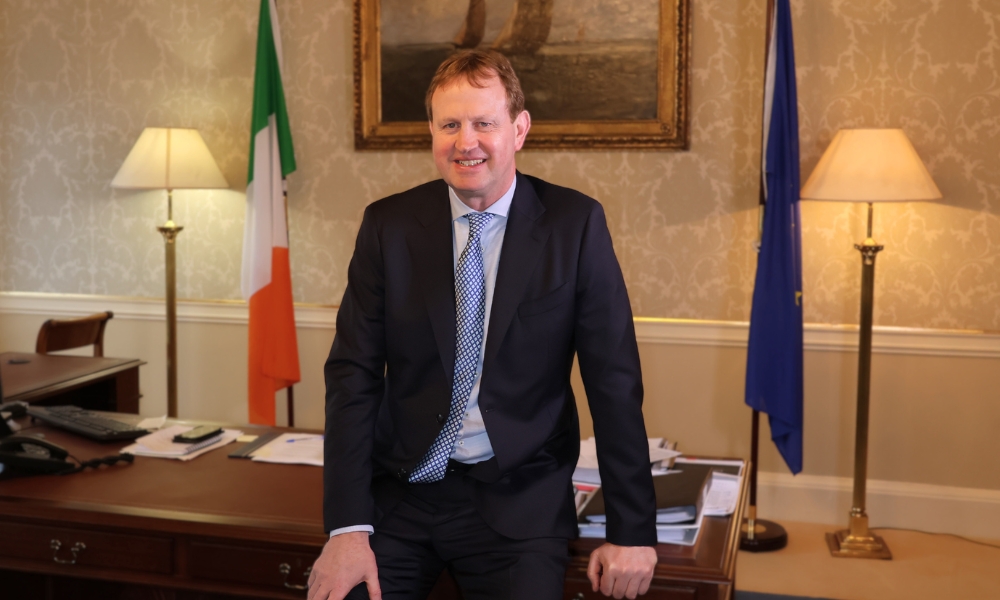Ireland could follow UK asylum crackdown

Jim O'Callaghan
Ireland could follow the UK in tightening asylum rules to avoid being “viewed more favourably than the UK” by asylum seekers, Jim O’Callaghan has suggested.
The UK government yesterday set out significant and controversial plans to address “the comparative generosity of our asylum offer when compared to so many of our European neighbours”.
Shabana Mahmood, the UK’s home secretary, said refugee status would become “temporary, not permanent”.
Refugee status will be granted for two-and-a-half years at a time, instead of five years, and will only be renewed “if it is impossible for a refugee to return home”, she announced.
Permanent settlement will only become possible for refugees who have been in the UK for 20 years, whereas most refugees currently can obtain it after five years.
Family reunion will not be possible “outside of the most exceptional circumstances”, and the government will also consult on removing benefits from refugees who have the right to work but are not in work.
Refugees with income or assets will also now have to contribute to the cost of their stay, Ms Mahmood said — which media reports have suggested will include taking their jewellery, but not wedding rings.
Ms Mahmood said her government would step up deportations to Syria and Albania, and would impose visa penalties on Angola, the Democratic Republic of the Congo and Namibia if they did not cooperate with removals.
She also said the government would “narrow” rights under Article 8 of the European Convention on Human Rights (ECHR), which she said had contributed to “the merry-go-round of claims and appeals that frustrate so many removals”.
Changes to UK law and immigration rules will clarify that a “family” is defined exclusively as parents and their children.
The “public interest” test will also be defined “so the default becomes a removal or refusal, with Article 8 rights only permissible in the most exceptional circumstances”.
Article 8 claims will not be allowed to be lodged from overseas and will be required to be “heard first by the Home Office and not in a courtroom”.
The UK will also pursue international reform of Article 3 ECHR, which prohibits torture and inhuman or degrading treatment, on the basis that the definition “has expanded into the realm of the ridiculous”.
Ms Mahmood said the changes would “build an asylum system for the world as it is” and would restore “order and control”.
She concluded: “I know the country we are. We are open, tolerant and generous. We are the greater Britain… not the littler England that some would wish we would become.
“These reforms are designed to bring unity, where others seek to divide.”
Mr O’Callaghan, Ireland’s justice, home affairs and migration minister, said: “I and the government are aware that changes to the UK’s asylum practices or laws can result in changes to the flow of asylum seekers between the UK and Ireland.
“I am committed to ensuring that Ireland is not viewed more favourably than the UK by those seeking to claim asylum.
“Consequently, I will closely monitor the changes proposed by the UK government and will respond to those proposals having considered them fully and discussed them with government colleagues.
“I will be publishing a new International Protection Bill to reform Ireland’s asylum system later this year and any necessary changes arising from the UK’s change of policy can be included in that bill.
“Prior to the changes proposed by home secretary Mahmood, I had already directed a separate review of Ireland’s rules on family reunification and will shortly bring proposals to government in respect of this issue.”









